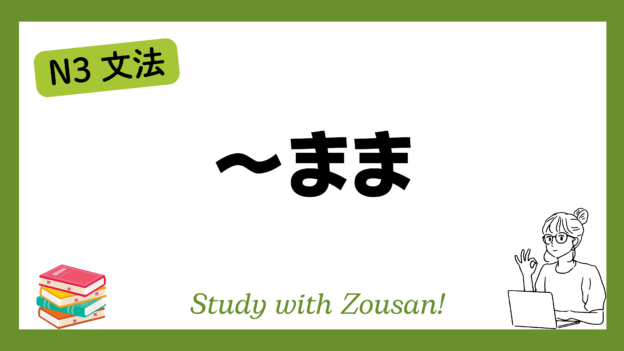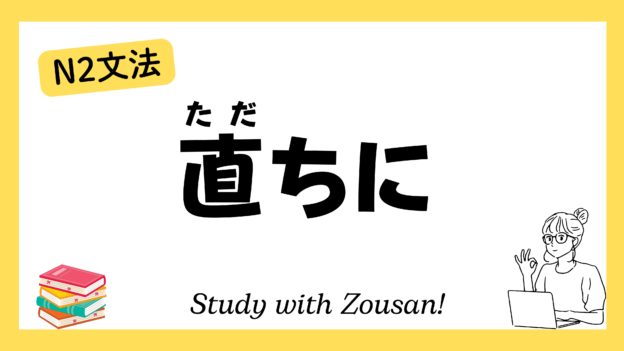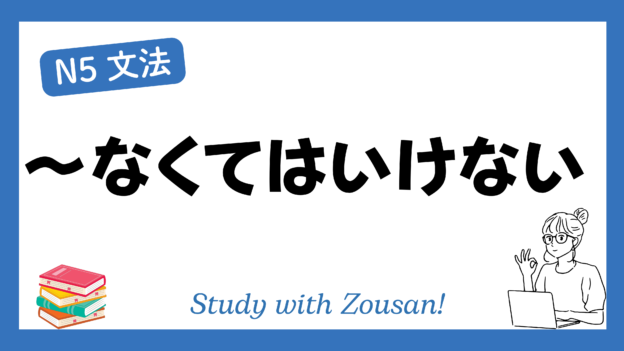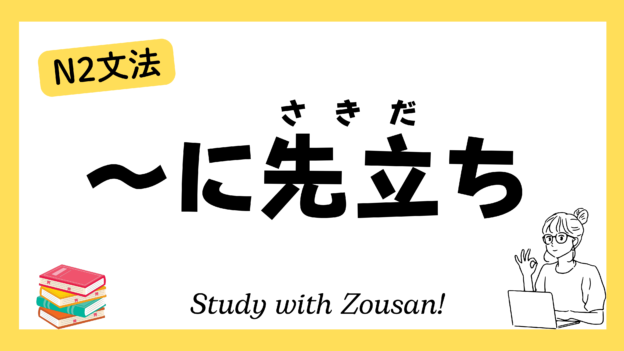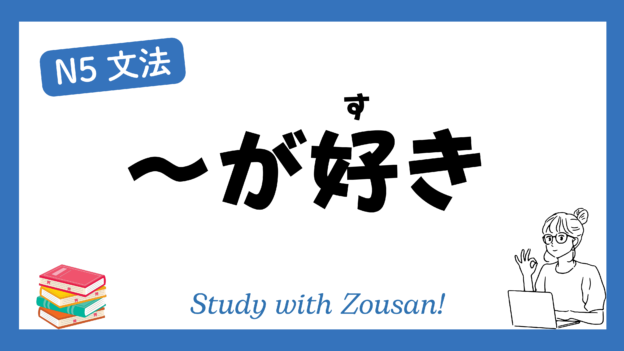N3文法:~まま
Meaning: “As it is”, “In the state of”, “Without changing”
“~まま” is used to express that something remains in the same state or condition without any change. It can be translated as “as it is”, “in the state of”, or “without changing”. It indicates that an action or state continues without alteration or is performed while something remains in the same condition.
※Note: This structure is commonly used to describe actions that occur while something remains in a particular state, or when something is left unchanged.
Structure:
| Noun + の | + まま |
| Verb (た form) | |
| Verb (ない form) | |
| な-adjective + な | |
| い-adjective |
Example:
-
-
-
🌟 靴を履いたまま、部屋に入らないでください。
(くつ を はいた まま、へや に はいらないで ください。)
Please don’t enter the room with your shoes on. -
🌟 エアコンをつけたまま寝てしまった。
(エアコン を つけた まま ねてしまった。)
I fell asleep with the air conditioner on. -
🌟 眼鏡をかけたまま、お風呂に入ってしまった。
(めがね を かけた まま、おふろ に はいってしまった。)
I accidentally took a bath with my glasses on. -
🌟 ドアを開けたままにしておいてください。
(ドア を あけた まま に して おいて ください。)
Please leave the door open. -
🌟 電気をつけたまま、部屋を出てはいけません。
(でんき を つけた まま、へや を でて は いけません。)
Don’t leave the room with the lights on. -
🌟 彼は座ったまま動かない。
(かれ は すわった まま うごかない。)
He’s not moving while sitting. -
🌟 このままでは問題が解決しない。
(この まま では もんだい が かいけつ しない。)
The problem won’t be solved if things stay as they are. -
🌟 私は彼の家にいるまま、テレビを見ている。
(わたし は かれ の いえ に いる まま、テレビ を みている。)
I’m watching TV while staying at his house. -
🌟 何も言わないまま、彼は部屋を出て行った。
(なにも いわない まま、かれ は へや を でていった。)
He left the room without saying anything. -
🌟 ドアを開けっぱなしのままで、外に出た。
(ドア を あけっぱなし の ままで、そと に でた。)
I went outside leaving the door wide open.
-
-



